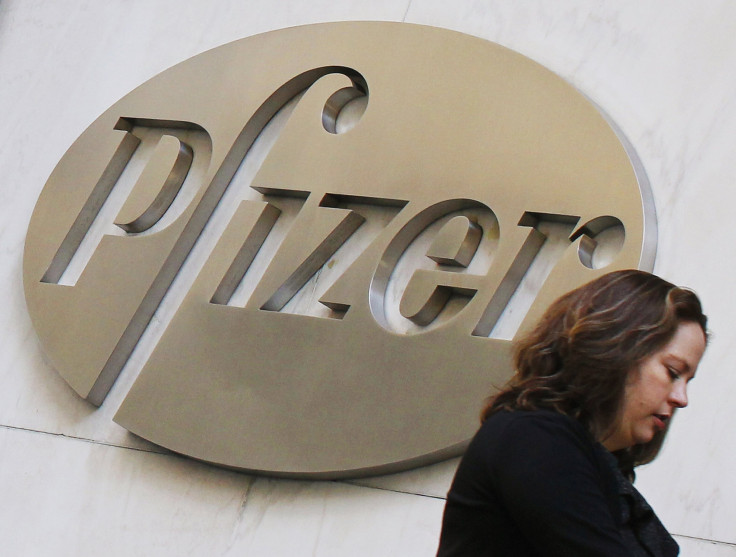Pfizer Inc. (PFE) To Focus On Company Restructuring, New Drugs As Q2 Expected To Have Lukewarm Earnings

Pfizer Inc. (NYSE:PFE) is expected to focus on the development of new, experimental drugs during its second-quarter earnings call on Tuesday morning as the company tries to regain revenue lost to generic competition.
The New York-based pharmaceutical giant on Monday announced a pending split into three units, aimed at boosting the value of each of its commercial operations. The reorganization will be effective Jan. 1.
Analysts polled by Thomson Reuters predicted Pfizer will earn 42 cents per share in the second quarter on revenue of $13.04 billion, down from 43 cents per share on revenue of $15.06 billion in the same period a year ago.
The company began divesting many of its noncore businesses so it can shift focus to consumer drugs for humans in the lead-up to the reorganization. Last month, the company divested its 80 percent stake in its veterinary business, which it spun off in February as a public company called Zoetis Inc., by giving shares in the company to Pfizer shareholders who wanted to swap stocks.
Under Pfizer's new three-part structure, one business segment will include therapeutic areas like inflammation and immunology, cardiovascular and metabolic, neuroscience and pain, rare diseases and gender-based health products. A second segment include vaccines, cancer medication and consumer health-care offerings. And a third group will focus on major-market drugs that will lose patent exclusivity over the next two years, allowing the company to try positioning itself in growing markets like China and Brazil.
The split will likely dominate many analysts’ questions during the earnings call.
“Our new commercial operating model will provide each business with an enhanced ability to respond to market dynamics, greater visibility and focus, and distinctive capabilities optimized to deliver value to patients and shareholders in the coming years,” Ian Read, the chief executive and chairman, said in a statement on Monday.
But Read will also likely tout yet another approval for Prevnar 13, the best-selling vaccine in history. European regulators greenlighted the drug, used for preventing ear infections, meningitis and other pneumococcal infections, for sale to 18-to-49-year-olds, making it the first market to approve the drug for all age groups, the AP reported.
But sales for Eliquis, a new type of anticlotting drug, have been disappointing. The drug, approved to prevent strokes in those suffering heart arrhythmia, was launched in February in partnership with Bristol-Myers Squibb Co. (NYSE:BMY), which in its second-quarter earnings last Thursday reported its share of sales at just $12 million.
So, how will Pfizer executives keep wooing its analysts and investors on Tuesday? Cancer drugs.
Over the past two years, Pfizer stepped up its cancer research and launched three drugs – Xalkori, Inlyta and Bosulif – between August 2011 and September 2012. Sales of those drugs will likely be discussed.
So, too, will Pfizer’s first offering in its latest generation of cancer drugs: Palbociclib. It won designation from the Food and Drug Administration as a breakthrough therapy for breast cancer, likely speeding up its final testing and revenue.
The company’s stock was up nearly 1.3 percent on Monday afternoon to $29.75 per share.
© Copyright IBTimes 2024. All rights reserved.






















